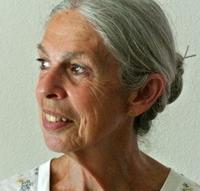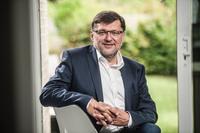ISREV 2021- Key Note Speakers
Key note speakers at the ISREV session XXII 2021 are Hanan Alexander, Bert Roebben, Petro Du Preez, Stéphanie Tremblay and Ina ter Avest.

Hanan Alexander
Hanan Alexander, University of Haifa
John Hull Memorial Lecture
Religious Education in the Public Sphere
Influential accounts of secularism consider religion to be a source of social divisiveness. Political philosophers such as John Rawls and Jürgen Habermas, for example, went so far as to limit the influence of religious belief and practice to the private domain, leaving the public sphere to be a so-called neutral meeting ground for different concepts of how one should live. In some societies this led to restricting religious education to private denominational institutions, outside the bounds of state supported education. In others, it led to broadening the very definition of religious education to include exposure to traditions other than those to which one is heir or with which one chooses to affiliate. However, this so-called neutral public sphere is dissolving today with the rise of populism on the left and the right of the political spectrum in many countries around the world; and initiation into exclusionary forms of belief and unbelief are playing increasingly significant roles in its dissolution. John Hull’s critique of what he called “religionism” in religious education, or the teaching of one religious faith so as to denigrate others, was an early attack on this misuse of religious teaching. In this lecture in memory of Professor Hull, I will build on his critique to consider how religious education can play a positive role in reconstructing the public sphere of liberal and constitutional democracies as a place for dialogue across deep difference, not a neutral meeting ground.

Stéphanie Tremblay
Stéphanie Tremblay, Professor, Department of Religious Studies, Université du Québec à Montréal
Beliefs and Lived Secularism Among Quebecers from the Catholic Majority
This research aims to explore the intimate experiences of religion of Quebecers of the Catholic culture whose “centrist” religiosity is much less documented than the “extreme” forms of the religious or arising from immigration. The preliminary results draw our attention above all to the links formed by the participants between the place of Catholicism in their biographical trajectories, and their views of the religiously acceptable, while also showing areas of rupture and continuity, often unexpected, between Quebecers of different generations. This secular attachment to Catholicism is more broadly reflected in the specific model of laicity recently enshrined in the Quebec legal framework. Although the point of departure is very local, many observations reflect and provoke thought on global tendencies at work in matters of secularization, individualization of beliefs, and religion’s potential to provide resources of meaning on which individual and collective identities can be built. Here and elsewhere, religion acts as a factor in political mobilization that is particularly important in a context of collective insecurity and growing social polarization.

Petro Du Preez
Petro Du Preez
The religion and education policy of South Africa is moribund!
This paper is concerned with the question as to whether the Policy on Religion and Education of South Africa is near extinction, and if so, why? Policies are always temporally and spatially bound. As societal transitions occur, policies needs to be revised. But based on what? In this paper I draw cartographies of understanding how policies on religion and education are often justified to the extent that it keeps the status quo (ante) intact. Maintaining the status quo (ante), in a divided society like South Africa, might lead to further discrimination and violence which undermines any attempts to redress inequalities and injustices of the past. I begin this paper by outlining the discursive formation of the Policy on Religion and Education of South Africa. The policy claims that it is educationally framed and not religiously. However, a close reading of debates concerning this policy, quickly reveal that there are conceptual flaws in the justifications posed. Some lean towards transcendental justifications, whereas others gravitate towards immanent justifications. But it is not as simple, as the spectrum of transcendental and immanent justifications are much more nuanced. However, despite these varied nuances, it still seems necessary to seek alternative justifications for ethical, normative policy development. As I will evince in this paper, alternatives are worth exploring to expand policy discourses in the contemporary public space. The paper is timely and significant, not only because the debates around these issues seem to have waned in the past five years or so in South Africa, but because it has implications for drawing cartographies, old and new, for ethical, normative policy development – in South Africa and abroad. Hence, although this paper uses South Africa as a context, policy makers for religion and education worldwide can benefit from re/con/figuring their basic assumptions underpinning ethical, normative policy development. A re/con/figuration of ethical, normative policy development in general, ought to move beyond (both in spatial and temporal terms), static, historically shaped conceptions of religion and education.

Ina Ter Avest
Ina Ter Avest
Narratives in Need of Narrators; RE in a Secularised/Secularising World
Secularization, understood as a decrease of religious traditions’ role in the public domain as well as in the personal construction of meaning, has resulted in the loss of a sense of belonging to something larger than ourself. This results in uncertainty and fear. The Polish-British sociologist Zygmunt Bauman (2000) coined the concept of 'liquid modernity' for the age we are living in. With this concept he refers to the liquidization of boundaries – also of religious traditions. How can we position ourselves amidst the entanglement and intersectionality of actual social situations and their plurality of sense giving interpretations. The once-upon-a-time taken for granted frame of reference of religious traditions in the secularizing/secularized age turned into hackneyed phrases. The Dutch theologian Kees de Groot offers a challenging perspective on this process. He writes about the ‘liquidation of the church’. With a play on words he refers to liquidizing boundaries – also of religious traditions - , and to the organisational and legal interpretation of the concept of ‘liquidation’. In case of liquidation of an organization, machines and buildings are sold, that means that others – outside the original organization – make use of it in their own way. To respond to today’s uncertainty and fear we have to explore where and in what way core characteristics of religious traditions are re-presented in society. What kind of stories are told for example in metropolitan art and architecture, in national paintings and statues, in h/bollywood movies, in international soccer competitions, in pop culture and in (online) media. Oceans of stories in search of narrators who uncover stories’ possible underlying layers of people as relational beings, longing for belonging to the world and beyond. To go beyond ‘teaching, in, about and from’ I recommend for the subject Religious Education in a ‘secular age’ to make use of bibliodrama techniques to explore to day’s narratives and their possible contribution to the existential need for believing and belonging. By consequence I recommend to change the name of the subject Religious Education into ‘normative citizenship education’ – ‘normative’ referring to (religious or secular) value orientations and citizenship referring to each person’s need for others’ narratives in learning to live together. With a clear example I will illustrate my argument.

Bernt Roebben
Bert Roebben
Religious Educational Leadership in Times of Upheaval. How to Build Sustainably on Insights From the Past?
In my presentation the focus will be on the retrieval of vital elements of contemporary religious pedagogy after the corona-crisis. It is my contention that these elements will need to be reconsidered and reconsolidated in the years to come, because they have lost their evidence in times of upheaval. We thought that we could overcome the pedagogical crisis in 2020 and 2021 by making cosmetic changes and including digital products in our curricula, but we forgot the need for ongoing learning processes “on equal terrain” (Tom Beaudoin) with our students, even if they were absent to us and we to them. Based on the early work of the Dutch practical theologian, Johannes A. van der Ven (1940-2019), we believe that the general and specific didactics of RE should be anchored in fundamental didactics of RE – in a wider vision on what is the aim of education, also in times of deep crisis. As far as I am concerned, this aim should be “growing in shared humanity”. The joint search processes and relevant information about human existence and transcendence – or in other words about being a person and about the “ultimate reality” (Paul Tillich) of that person – in order to gain that common goal can then be the core of the curriculum in RE. Against this backbone I reinterpret seven generative themes of religious pedagogy for today and tomorrow. They are: correlation, inclusion, interpretation, character, narration, performance and spirituality. The challenge is to reinvent these important categories in cooperation and “on equal terrain” with the future inhabitants of the globe, the children and young people in our global classrooms.

